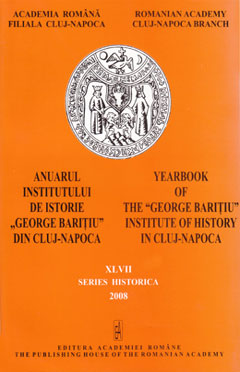Recrutarea corpului profesoral al universităţii din Iaşi la începutul epocii interbelice. Cazul Petre Andrei
The elections of professors at the University of Jassy at the Beginning of the Interwar Period. Petre Andrei Case
Author(s): Cătălin BotoșineanuSubject(s): History
Published by: Editura Academiei Române
Keywords: University of Jassy; Professors; Interwar Period; Elites; Academic Life
Summary/Abstract: The elections for the professors' chairs in Romania, between wars, were a very important preoccupation of the political class, being seen as a guarantee of the quality of the academic education. To put into practice the German or French model was the main issue of the debate in that period of time. The solution chosen by the higher education law of 1912 proposed some ways for the elections inspired by the two systems, but also imposed, by the 81 article, an original method to choose the academic stuff. A professor was directly appointed, without examination, by the Ministry of the Instruction at the recommendation of the majority of the professors' council. This was the solution even if there were more than one candidate. In practice, the ambiguity of these stipulations made contestable the elections of some professors, and the rightness of the system of recruitment was doubtful. The case of P. Andrei's appointment shows us another image of the usage of the legal ways of recruitment beyond the scientific proficiency validated by the Faculty of Letters' Board, but also the morphology of the groups of professors from Cuza University. This was a particular case because the legal recommendation of G. Aslan for the History of Antique Philosophy, Ethics and Sociology Chair was not accepted by the Ministry, because of the very strong impugnments of some professors from the Letters Faculty. The group formed by Traian Bratu and G. Ibraileanu joined the I. Petrovici position, who wanted P. Andrei to be elected for that chair. The success of this group was dued to I. Petrovici, an important political leader of People party, which was in the Government in that period of time. These struggles demonstrate the fact that any institutional intercession at the Letters Faculty meant at the same time to assume a power project. In conclusion, the appointment of Petre Andrei was made to save some hierarchical positions and the group favorable to him enlarged the influence and the authority within the Faculty.
Journal: Anuarul Institutului de Istorie »George Bariţiu« - Series HISTORICA
- Issue Year: XLVII/2008
- Issue No: 47
- Page Range: 219-235
- Page Count: 17
- Language: Romanian

